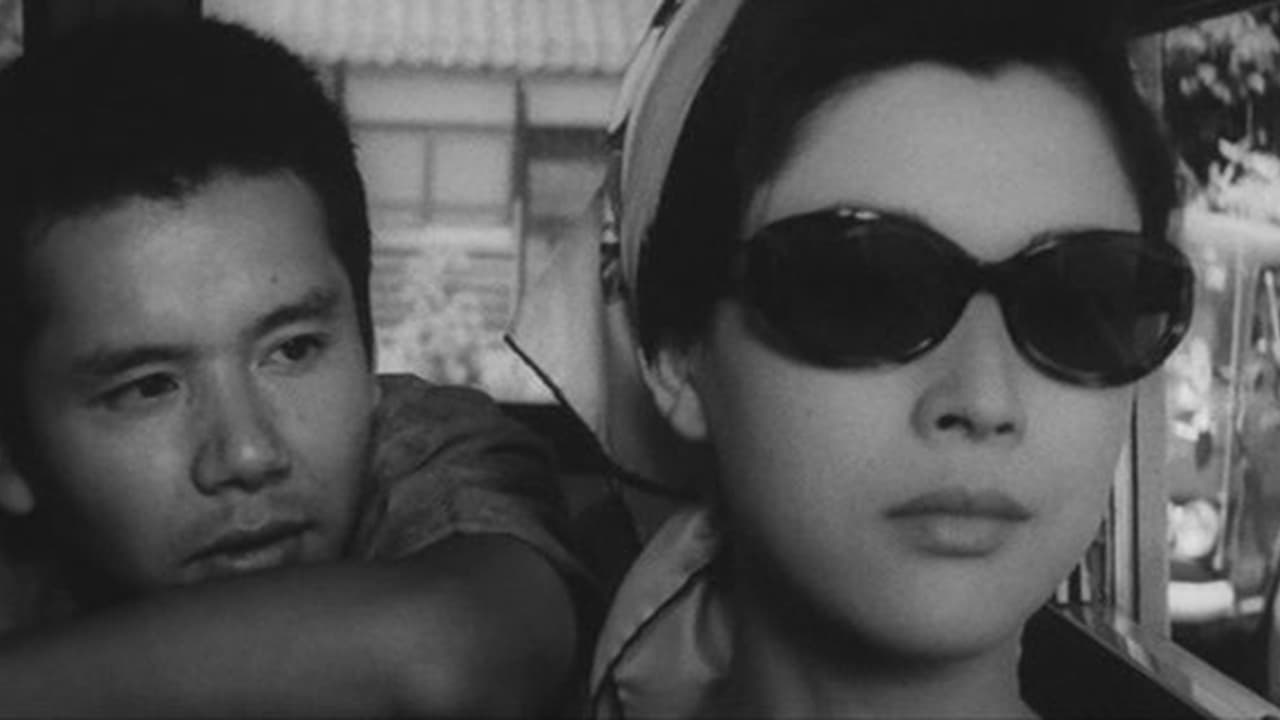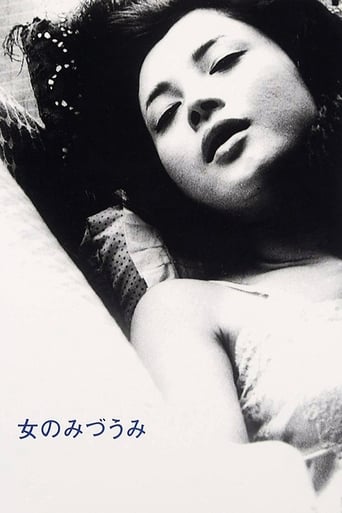



From my favorite movies..
A Disappointing Continuation
Fun premise, good actors, bad writing. This film seemed to have potential at the beginning but it quickly devolves into a trite action film. Ultimately it's very boring.
View MoreGreat story, amazing characters, superb action, enthralling cinematography. Yes, this is something I am glad I spent money on.
View MoreYoshishige Yoshida (sometimes transliterated as Kiju Yoshida) is a key Japanese New Wave filmmaker and one of the most underrated movie directors of all time. Woman of the Lake stars his wife Mariko Okada once again, and is based on the novel by Yasunari Kawabata. The story itself isn't that interesting on paper, however Yoshida creates an incredibly captivating and lyrical film out of it.The cinematography is flawless. The film begins in one of Yoshida's customs, with a cold opening before the credits, and ends in one of the most remarkable final shots I've seen in a while. Among the film's themes is the element of stalking and intrusion, which is reflected by many shots which show the characters seen through gaps, windows and battered holes, making the scenes look voyeuristic in nature. The characters are often seen through mirrors, windows and reflective surfaces (one of Yoshida's running themes seems to be alienation or existentialism). Okada's figure is sometimes shown in manners which seem to divide her or split her in two. Even in the beginning, when the negatives get stolen, the way the scene is cut makes it look like there are two women there instead of one.Of course I have to mention the breathtaking images of nature - that second part of the film, where the characters wander around shipwrecks on the coast, or the human-faced cliff... No words. The shot composition and chiaroscuro lighting is out of this world. I'm also quite fond of the quiet scene which is suddenly interrupted by a loud sound of waves crashing - the sound that quiets down as the camera focuses in on the waves. It's a perfect compound of both visuals and sound.The music consists of a single theme that plays constantly, and sounds very fitting to the film. It adds to the enchanting atmosphere. The majority of the non-speaking parts are silent though, and combined with long shots they succeed in creating a feeling of discomfort and mystery.Even if you don't find yourself caring much about the plot, you have to admit those visuals are astounding. Wow.
View MoreThe dissatisfied and attractive wife of a wealthy businessman faithless an affair with a young employee who, during one of these meetings in a room by the hour, the photographer in compromising poses. The shots end up in the hands of a secret admirer of her that blackmails proposing a meeting in a coastal spa town. She agrees, but followed 'by the jealous boyfriend who is not going to give up on her despite already busy with another girl. Surprise ending. Chasing the restless spirit of a female presence in search of its own identity (sexual, social, emotional) Yoshida's story depicts the intense pages of the Nobel Prize Yasunari Kawabata, in a psychological drama refined and allusive, always torn between a representation a male-dominated society and closed (such as the Japanese of the time) and the new libertarian impulses that was a prelude to a relentless and progressive emancipation of the costumes. Product of an unconventional and innovative conception of art, the work of the Japanese director through as few shameless geography of a woman's body showed how symbolic and figurative representation of this cultural transformation, privileging plasticity in both the eccentric movement of the machine (the limit of mere exhibitionism) and in the choice of shots (often framing the intimacy of the protagonists from the shelter of a morbid indiscreet intrusion) the new prospects for a look that penetrates the epidermal surface of a reality seemingly reassuring to delve into the intricacies of a inner upheaval that does not take long to occur. The stages of this process of instrumental mystification of female identity is well represented by the figure of a protagonist (the beautiful Mariko Okada) as a character in search of a way out from their worries, moving from the role of reassuring gheisha and mother , to that of shameless exhibitionist and faithless to the threshold of a sexual transgression and sentimental that does not mind the subtle skirmishes of seduction and murder as a means of turning the final and decisive blackmail men: a tunnel with no escape from which, however, will come out a loser and unsatisfied . Accompanied by catchy melodies and sweet of you Ikeno and beautifully photographed by Tatsuo Suzuki, shows the soul of an ambiguous japan among the chaotic turmoil of city life to the ambiguity of a perverse and morbid sunny coastal province such as theater, posing for shots forbidden in the back room of a store development and printing to the unusual and daring of a film daring among the wreckage of abandoned ship in dry. The Yoshida movie glimpse an original dystopian sensitivity related to the role of women in Japanese society so far removed from the stereotypes and expectations of the Western audience, yet so intense for the evocative expressive and cultural fascination offering.
View MoreHere's a film with lots of undressed Japanese nymphs and lots of stalking going so I was def bound to dig this after having my mind polluted from seeing all these Japanese new wave films this week. I have a hunch this woman of the lake is sisters with Woman of the Dunes because they're both sexually charged and have excellent camera work which is mainly shot on sand. This film follows a fairly linear structure: a woman has an affair with a man and decides to take nude photos of her-- they get stolen by a stalker who blackmails her with them. She then goes to the stalkers designated location and follows him to a lake, and from here the cinematography reaches the melting temperature of my eyes and only increases as the film goes on, until my eyes sublimate into gas and I'm left eye-less which is why I highly don't recommend watching this film. I think I'm also becoming a fan of Japanese lakes too, with its pubescent reeds signifying Japan's maturity and struggles down the centuries. I've already familiarized myself with lake Biwa, I just wish I knew the lake that was shot here. Reeds are also played in the film's score along with harps and helped build the whole enchanting/mysterious atmosphere. The key is in the atmosphere and it's what kept me hooked throughout the film (I now write this using a braille keyboard xd).
View MoreA woman lets her paramour take naked pictures of her which reaches the hands of a stalker. Thus starts Woman of the Lake, a tale in many ways similar to Woman in the Dunes. A story of frustration and desperation, the woman cannot decide whether she wants to face the inevitable moment of truth or push, peddle and hope for a compromise. In the end, the results are all too complicated and it is a surprise if she retains her sanity. Against a backdrop of lonely landscapes, the woman betrays, is betrayed, and a complex series of events lead the film to a strange, but captivating, end. The performances are extremely restrained and lend a great depth to the film.
View More